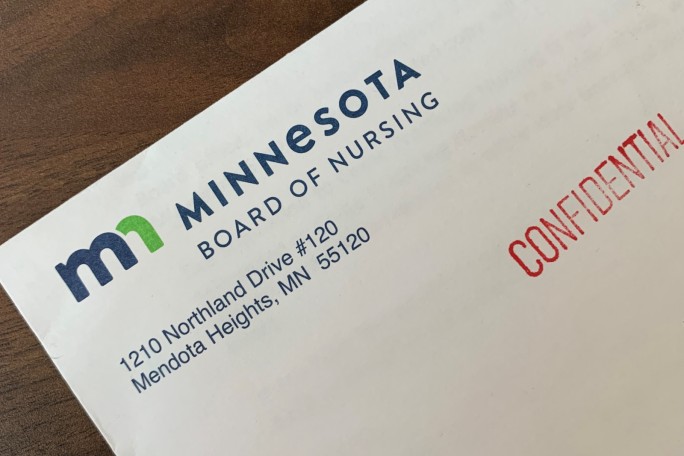3 Tips for Dealing With a Complaint Against Your PracticeOct. 18, 2022

By Melissa Heinlein, Esq.
Learning that a complaint has been filed against your practice is a nerve-wracking experience for any licensed professional. The news typically comes in the form of a letter from your Board and sometimes gives you little or no information about the nature of the complaint. Most licensed professionals who reach out to our office feel panicked, or even ashamed to be the subject of a Board investigation.
What you need to know is this: a complaint is NOT an automatic indicator that you are a bad person or a bad professional. No one is perfect, not even elite licensed professionals. Liability and malpractice insurance exist for that very reason. Think about the word we use for our professional work: it's a "practice." Your practice is always developing and evolving. Professionals at every stage of their careers have room to grow, because the process never ends.
Nurses, physicians, social workers, and others are trained to uphold a high standard. High standards are necessary to protect the public. But when your standards are high, it can be hard to forgive yourself if things go awry. Have patience with yourself as you navigate the complaint process. Many have been where you are and come out on the other side with renewed perspective and dedication.
Consider the following 3 reminders if you have received a complaint:
1. Take immediate ownership of a mistake.
False allegations do happen, but if you are aware that you made an error, you will be best served by owning up to it and taking corrective action immediately. Boards look favorably upon those who can humbly admit to a mistake, recognize the circumstances that led to it, and consciously turn it into a learning experience. Flat-out denial tends to be a poor tactic.
2. Understand how it happened.
If your Board asks you to present for a hearing, you will be expected to explain your actions. Know that there is a fine line between making excuses and explaining yourself. Boards tend to lack sympathy for defensive excuses and finger-pointing. That said, the facts do matter in your case. The Board will recognize the factors that were beyond your control, if they are presented gracefully and with awareness of what you could have done better. For every allegation against you, take the time to reconstruct the circumstances in your mind. Your license defense attorney will work with you to present the facts in the best light for a good outcome.
3. Breathe.
A complaint filed against your practice is confidential unless and until the Board enters an Order. The Board also does not consider allegations to be true unless they are substantiated through due process. In other words: you get ample opportunity to tell your side of the story before anything becomes public. Don't be afraid to search for a new job if that is what you want or need. Note that if you are completing a license renewal, disclosure of a pending investigation may be required on the application. Outside of those limited circumstances, though, the matter is private, and you can positively influence the outcome with good preparation and smart choices.
If you have been contacted by your licensing Board and are unsure what to do, please contact me for a free consultation at 612-333-5673 or send us a message. At Lord + Heinlein, we are your powerful legal voice.
